14-15学年高中英语(人教新课标,必修五)课件:Unit 1 Great scientists Period 3 Language points(共27张PPT)
文档属性
| 名称 | 14-15学年高中英语(人教新课标,必修五)课件:Unit 1 Great scientists Period 3 Language points(共27张PPT) |  | |
| 格式 | zip | ||
| 文件大小 | 4.6MB | ||
| 资源类型 | 教案 | ||
| 版本资源 | 人教版(新课程标准) | ||
| 科目 | 英语 | ||
| 更新时间 | 2014-09-10 05:55:08 | ||
图片预览

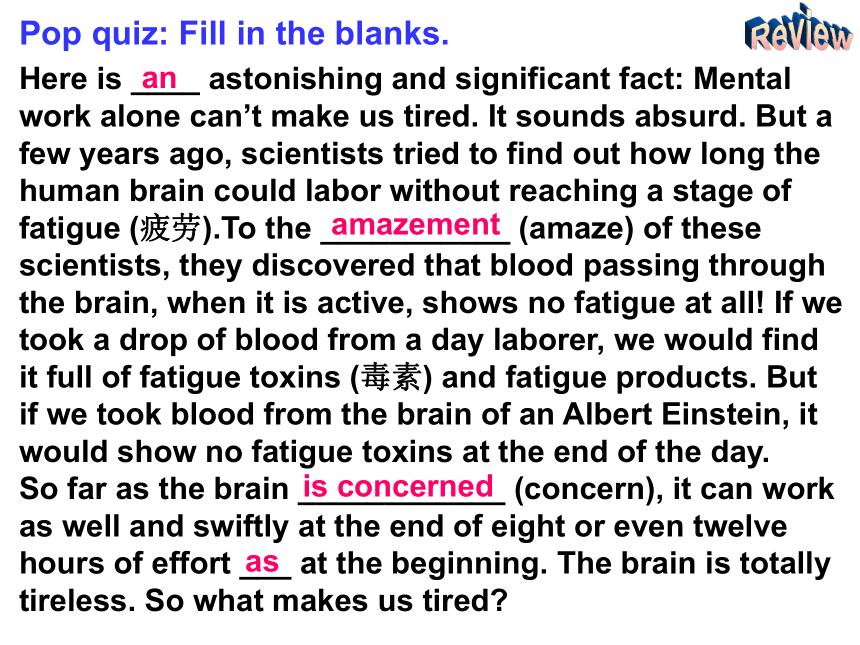
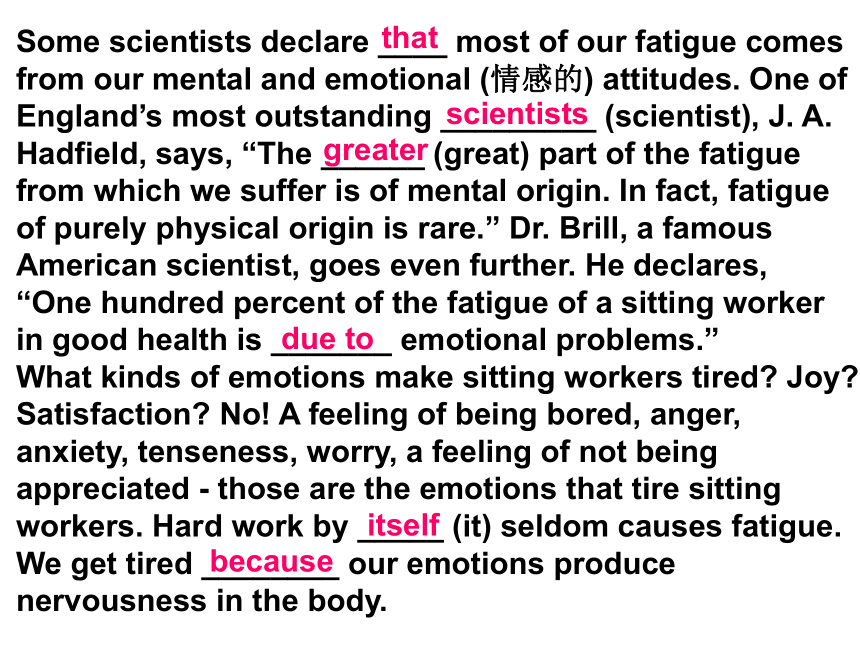
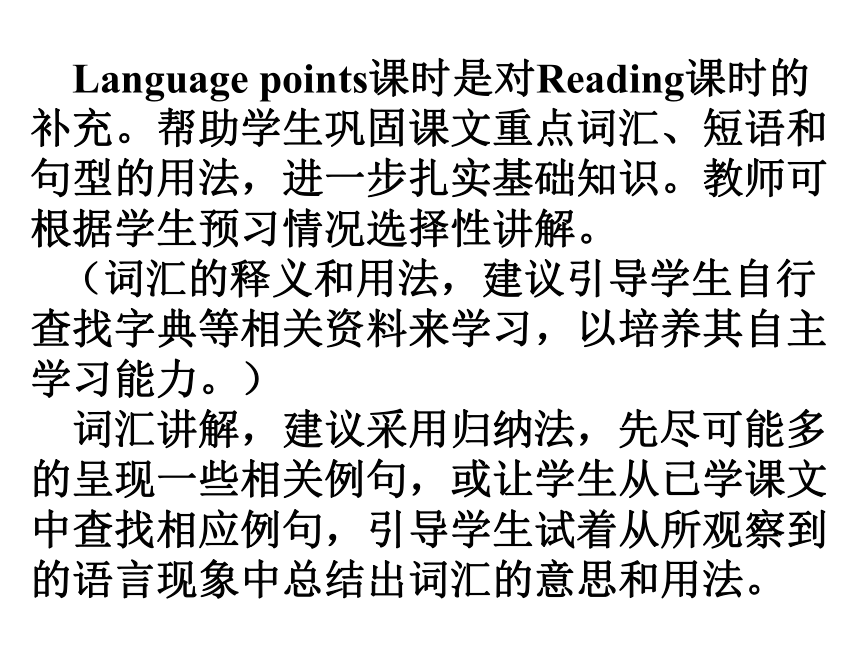
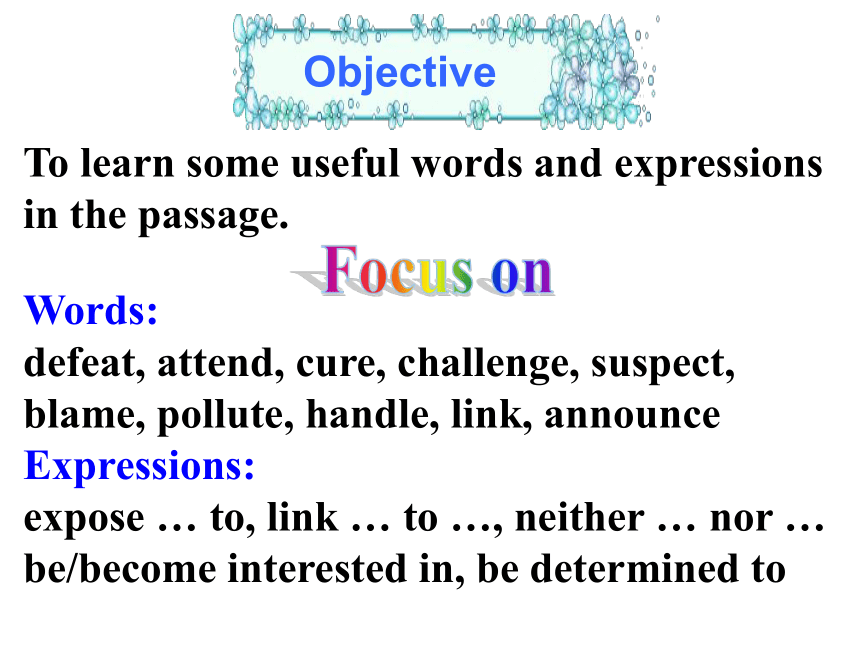
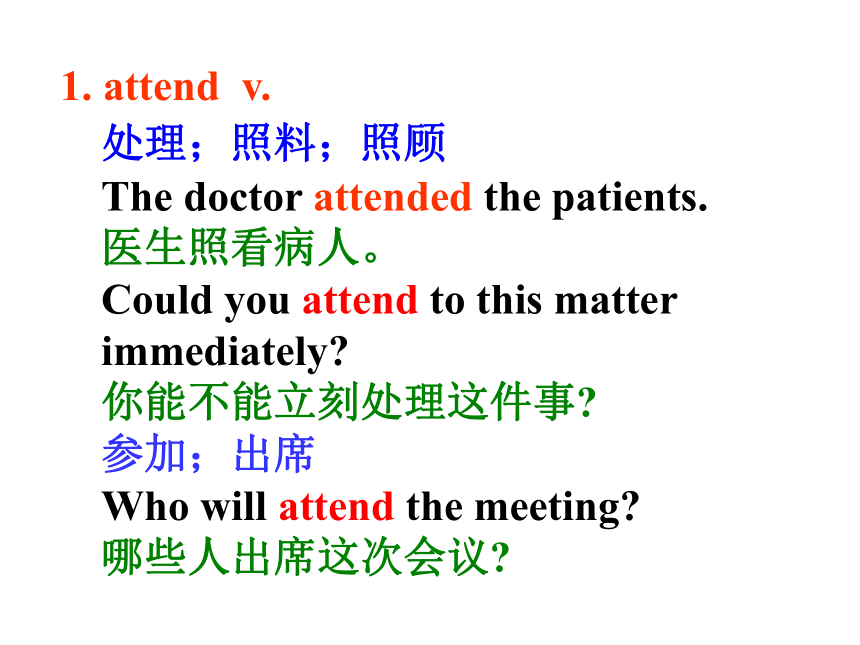
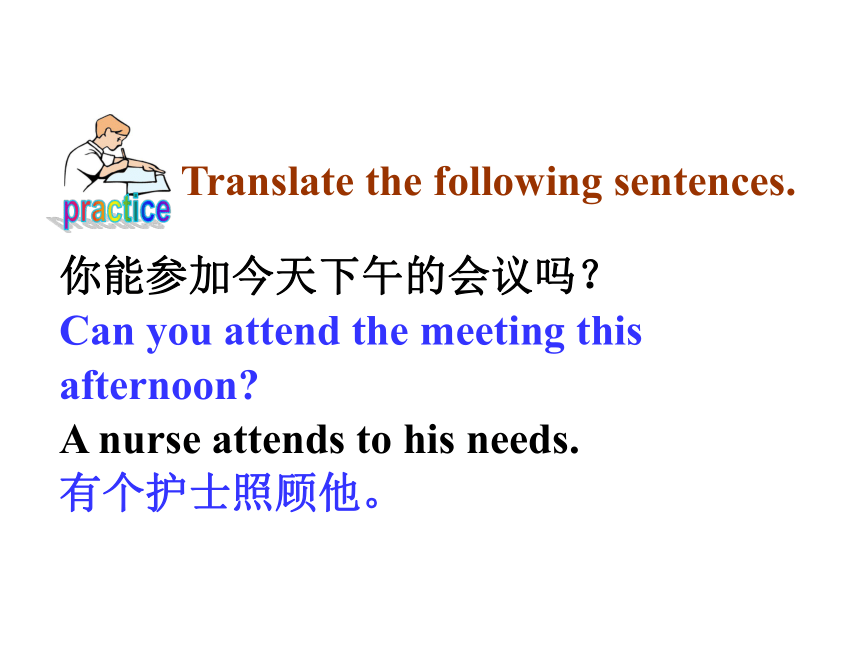
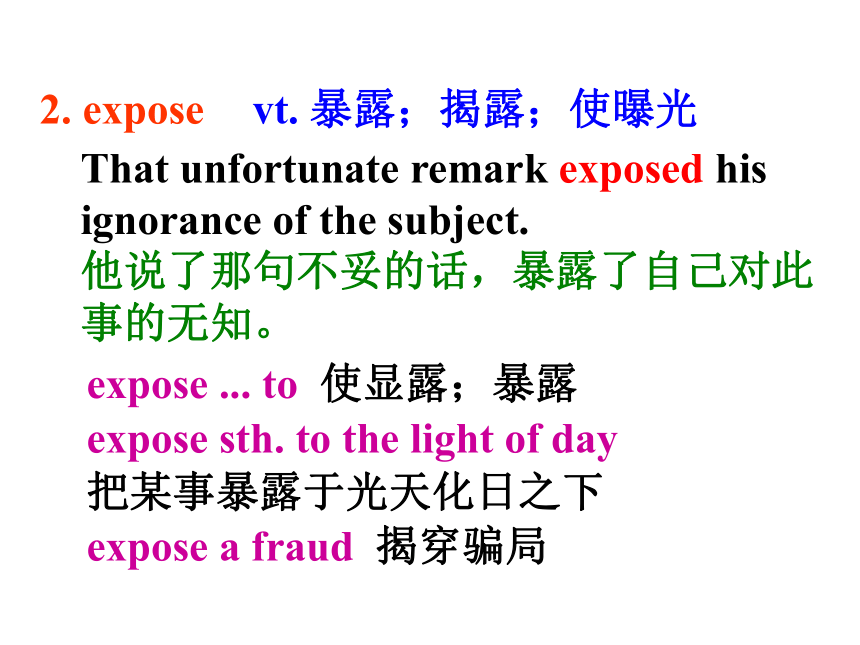
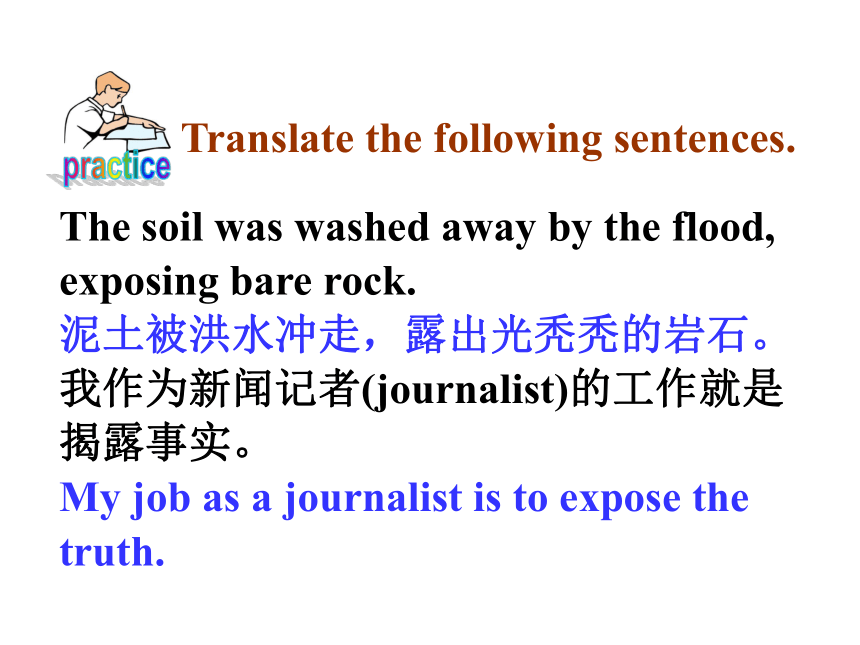
文档简介
课件27张PPT。英语课标教学课件必修5Pop quiz: Fill in the blanks.ReviewHere is ____ astonishing and significant fact: Mental work alone can’t make us tired. It sounds absurd. But a few years ago, scientists tried to find out how long the human brain could labor without reaching a stage of fatigue (疲劳).To the ___________ (amaze) of these scientists, they discovered that blood passing through the brain, when it is active, shows no fatigue at all! If we took a drop of blood from a day laborer, we would find it full of fatigue toxins (毒素) and fatigue products. But if we took blood from the brain of an Albert Einstein, it would show no fatigue toxins at the end of the day.
So far as the brain ____________ (concern), it can work as well and swiftly at the end of eight or even twelve hours of effort ___ at the beginning. The brain is totally tireless. So what makes us tired? anamazementasis concernedSome scientists declare ____ most of our fatigue comes from our mental and emotional (情感的) attitudes. One of England’s most outstanding _________ (scientist), J. A. Hadfield, says, “The ______ (great) part of the fatigue from which we suffer is of mental origin. In fact, fatigue of purely physical origin is rare.” Dr. Brill, a famous American scientist, goes even further. He declares, “One hundred percent of the fatigue of a sitting worker in good health is _______ emotional problems.”
What kinds of emotions make sitting workers tired? Joy? Satisfaction? No! A feeling of being bored, anger, anxiety, tenseness, worry, a feeling of not being appreciated - those are the emotions that tire sitting workers. Hard work by _____ (it) seldom causes fatigue. We get tired ________ our emotions produce nervousness in the body. thatscientistsgreaterdue toitselfbecause Language points课时是对Reading课时的补充。帮助学生巩固课文重点词汇、短语和句型的用法,进一步扎实基础知识。教师可根据学生预习情况选择性讲解。
(词汇的释义和用法,建议引导学生自行查找字典等相关资料来学习,以培养其自主学习能力。)
词汇讲解,建议采用归纳法,先尽可能多的呈现一些相关例句,或让学生从已学课文中查找相应例句,引导学生试着从所观察到的语言现象中总结出词汇的意思和用法。To learn some useful words and expressions in the passage.ObjectiveWords:
defeat, attend, cure, challenge, suspect, blame, pollute, handle, link, announce
Expressions:
expose … to, link … to …, neither … nor …
be/become interested in, be determined to Focus on1. attend v.
处理;照料;照顾
The doctor attended the patients.
医生照看病人。
Could you attend to this matter
immediately?
你能不能立刻处理这件事?
参加;出席
Who will attend the meeting?
哪些人出席这次会议?practice Translate the following sentences. 你能参加今天下午的会议吗?
Can you attend the meeting this afternoon?
A nurse attends to his needs.
有个护士照顾他。2. exposeexpose ... to 使显露;暴露
expose sth. to the light of day
把某事暴露于光天化日之下
expose a fraud 揭穿骗局vt. 暴露;揭露;使曝光That unfortunate remark exposed his ignorance of the subject.
他说了那句不妥的话,暴露了自己对此事的无知。practice Translate the following sentences. The soil was washed away by the flood, exposing bare rock.
泥土被洪水冲走,露出光秃秃的岩石。
我作为新闻记者(journalist)的工作就是揭露事实。
My job as a journalist is to expose the truth.3. handlen. 把手;柄
I turned the handle and found the door was open.
我转动把手,发现门是开着的。
vt. 处理;操纵
To tell the truth, I don't know if I can handle the job.
说实话,我不知道我能否做好这份工作。Things getting worse, the central government must take measures to ________ the problem.
A. analyse B. reject
C. handle D. expose practice Choose the best answer.4. curevt. 治愈;治疗n. 治愈;痊愈Penicillin cured him of pneumonia.
You cured me completely. There is still no cure for the common cold.
目前仍没有治愈感冒的良药。 青霉素治愈了他的肺炎。
你完全治愈了我。 practice Translate the following sentences. Her cure took six weeks.
她的病用了六个星期才治好。
这种病不好治。
This illness cannot be cured easily. 5. challengevt. 向……挑战n. 挑战He left a note at the scene of the crime, challenging detectives to catch him.
他在作案现场留了一张纸条,挑衅侦探们去抓他。The new government's first challenge is the economy.
新政府面临的第一项挑战是经济。The population of the world has reached seven billion, which is a great ________
to our limited resources.
A. disaster B. challenge
C. reaction D. measure practice Choose the best answer.We were ready to take the blame for what had happened.? 6. blamev. 责备;谴责I have nothing to blame myself for.
我自己是无可责备的。n. 过失;责备我们准备对所发生的事承担责任。blame sb. for (doing) sth.
因(做)某事而指责某人
blame sth. on sb. 把某事归咎于某人
sb. be to blame for (doing) sth.
因(做)某事某人应该受到谴责(此结构为主动形式表被动含义)
bear/accept/take the blame for sth.
承担……的责任
put/lay the blame for sth. on sb.
把某事的责任归咎于某人It was not the cyclist but the driver who ______ for the traffic accident.
A. was blamed
B. was to blame
C. was to be blamed
D. were to blamepractice Choose the best answer.Tips for teacherLet the word fly 板块是帮助学生学习一些一词多义、熟词生义的词汇。通过此环节,学生可以对一些常见词的用法、意思有一个全面的了解。在翻译过程中体会词汇使用的丰富多彩。Let the word flyTwo teams will have a race. The team that first give the proper meaning will get one point. Team racingReady?absorbv. 吸收(液体、气体、 光、声等);吸引全部注意力,使全神贯注; 汲取, 理解(知识等);合并(公司等),吞并;承受,经受So many good ideas! It's too much for me to absorb all at once. 汲取,理解(知识等)She won't be able to absorb another heavy blow. 承受;经受Small businesses are absorbed by big ones. 合并(公司等),吞并 吸收(液体、气体、光、声等)Cotton gloves absorb sweat.吸引全部注意力,使全神贯注The writer was so absorbed in his writing that he forgot to flick (轻弹) the ashes from his cigar.Review1. conclude (vt./vi.) 结束;推断出 →
conclusion (n.) 结论;结束
2. analyse (vt.) 分析 → analysis (n.) 分析
3. infect (vt.) 传染;感染 →
infectious (adj.) 传染的
4. die (vi.) 死亡 → death (n.) 死,死亡 →
dead (adj.) 无生命的 → deadly (adv.) 致命的
5. attend (vt.) 照顾;护理;出席;参加 →
attendance (n.) 出席;到场
6. severe (adj.) 严重的;剧烈的;严厉的 →
severely (adv.) 严重地;严厉地Individual activity注: 另附 word 文档。
点击此处链接I. Fill in the blanks. 1. The newspaper story ________ him as
(= showed that he was) a liar.
2. At one time the doctors couldn't ____
(治愈) TB.
3. The children are the innocent/helpless
_______ (受害者) of the fighting.
4. I have no reason to ______ (doubt) her
honesty/loyalty.
5. Don't _____ me (= It is not my fault) if
you miss the bus! exposed curevictimssuspectblame1. Don't ___________ (把它暴露) the
sunlight.
2. So many thousands of ______________
(惊恐的老百姓) died every time there
was an outbreak.
3. ________________________________
(他对两种推测都很感兴趣) that
possibly explained how cholera
killed people.II. Translation.expose it toterrified peopleHe became interested in two theories4. I can afford _____________________
______ (没时间也没钱) for a trip.
5. Realizing the situation I _______
_____________ (决心) fight to the last.
6. He said there is some evidence that
yawning (打哈欠) ___________
(与……联系) excitement.
7. The water companies were instructed
not to expose people to _____________
(被污染的水) any more.polluted water was
determined tois linked to neither the time nor the
money
So far as the brain ____________ (concern), it can work as well and swiftly at the end of eight or even twelve hours of effort ___ at the beginning. The brain is totally tireless. So what makes us tired? anamazementasis concernedSome scientists declare ____ most of our fatigue comes from our mental and emotional (情感的) attitudes. One of England’s most outstanding _________ (scientist), J. A. Hadfield, says, “The ______ (great) part of the fatigue from which we suffer is of mental origin. In fact, fatigue of purely physical origin is rare.” Dr. Brill, a famous American scientist, goes even further. He declares, “One hundred percent of the fatigue of a sitting worker in good health is _______ emotional problems.”
What kinds of emotions make sitting workers tired? Joy? Satisfaction? No! A feeling of being bored, anger, anxiety, tenseness, worry, a feeling of not being appreciated - those are the emotions that tire sitting workers. Hard work by _____ (it) seldom causes fatigue. We get tired ________ our emotions produce nervousness in the body. thatscientistsgreaterdue toitselfbecause Language points课时是对Reading课时的补充。帮助学生巩固课文重点词汇、短语和句型的用法,进一步扎实基础知识。教师可根据学生预习情况选择性讲解。
(词汇的释义和用法,建议引导学生自行查找字典等相关资料来学习,以培养其自主学习能力。)
词汇讲解,建议采用归纳法,先尽可能多的呈现一些相关例句,或让学生从已学课文中查找相应例句,引导学生试着从所观察到的语言现象中总结出词汇的意思和用法。To learn some useful words and expressions in the passage.ObjectiveWords:
defeat, attend, cure, challenge, suspect, blame, pollute, handle, link, announce
Expressions:
expose … to, link … to …, neither … nor …
be/become interested in, be determined to Focus on1. attend v.
处理;照料;照顾
The doctor attended the patients.
医生照看病人。
Could you attend to this matter
immediately?
你能不能立刻处理这件事?
参加;出席
Who will attend the meeting?
哪些人出席这次会议?practice Translate the following sentences. 你能参加今天下午的会议吗?
Can you attend the meeting this afternoon?
A nurse attends to his needs.
有个护士照顾他。2. exposeexpose ... to 使显露;暴露
expose sth. to the light of day
把某事暴露于光天化日之下
expose a fraud 揭穿骗局vt. 暴露;揭露;使曝光That unfortunate remark exposed his ignorance of the subject.
他说了那句不妥的话,暴露了自己对此事的无知。practice Translate the following sentences. The soil was washed away by the flood, exposing bare rock.
泥土被洪水冲走,露出光秃秃的岩石。
我作为新闻记者(journalist)的工作就是揭露事实。
My job as a journalist is to expose the truth.3. handlen. 把手;柄
I turned the handle and found the door was open.
我转动把手,发现门是开着的。
vt. 处理;操纵
To tell the truth, I don't know if I can handle the job.
说实话,我不知道我能否做好这份工作。Things getting worse, the central government must take measures to ________ the problem.
A. analyse B. reject
C. handle D. expose practice Choose the best answer.4. curevt. 治愈;治疗n. 治愈;痊愈Penicillin cured him of pneumonia.
You cured me completely. There is still no cure for the common cold.
目前仍没有治愈感冒的良药。 青霉素治愈了他的肺炎。
你完全治愈了我。 practice Translate the following sentences. Her cure took six weeks.
她的病用了六个星期才治好。
这种病不好治。
This illness cannot be cured easily. 5. challengevt. 向……挑战n. 挑战He left a note at the scene of the crime, challenging detectives to catch him.
他在作案现场留了一张纸条,挑衅侦探们去抓他。The new government's first challenge is the economy.
新政府面临的第一项挑战是经济。The population of the world has reached seven billion, which is a great ________
to our limited resources.
A. disaster B. challenge
C. reaction D. measure practice Choose the best answer.We were ready to take the blame for what had happened.? 6. blamev. 责备;谴责I have nothing to blame myself for.
我自己是无可责备的。n. 过失;责备我们准备对所发生的事承担责任。blame sb. for (doing) sth.
因(做)某事而指责某人
blame sth. on sb. 把某事归咎于某人
sb. be to blame for (doing) sth.
因(做)某事某人应该受到谴责(此结构为主动形式表被动含义)
bear/accept/take the blame for sth.
承担……的责任
put/lay the blame for sth. on sb.
把某事的责任归咎于某人It was not the cyclist but the driver who ______ for the traffic accident.
A. was blamed
B. was to blame
C. was to be blamed
D. were to blamepractice Choose the best answer.Tips for teacherLet the word fly 板块是帮助学生学习一些一词多义、熟词生义的词汇。通过此环节,学生可以对一些常见词的用法、意思有一个全面的了解。在翻译过程中体会词汇使用的丰富多彩。Let the word flyTwo teams will have a race. The team that first give the proper meaning will get one point. Team racingReady?absorbv. 吸收(液体、气体、 光、声等);吸引全部注意力,使全神贯注; 汲取, 理解(知识等);合并(公司等),吞并;承受,经受So many good ideas! It's too much for me to absorb all at once. 汲取,理解(知识等)She won't be able to absorb another heavy blow. 承受;经受Small businesses are absorbed by big ones. 合并(公司等),吞并 吸收(液体、气体、光、声等)Cotton gloves absorb sweat.吸引全部注意力,使全神贯注The writer was so absorbed in his writing that he forgot to flick (轻弹) the ashes from his cigar.Review1. conclude (vt./vi.) 结束;推断出 →
conclusion (n.) 结论;结束
2. analyse (vt.) 分析 → analysis (n.) 分析
3. infect (vt.) 传染;感染 →
infectious (adj.) 传染的
4. die (vi.) 死亡 → death (n.) 死,死亡 →
dead (adj.) 无生命的 → deadly (adv.) 致命的
5. attend (vt.) 照顾;护理;出席;参加 →
attendance (n.) 出席;到场
6. severe (adj.) 严重的;剧烈的;严厉的 →
severely (adv.) 严重地;严厉地Individual activity注: 另附 word 文档。
点击此处链接I. Fill in the blanks. 1. The newspaper story ________ him as
(= showed that he was) a liar.
2. At one time the doctors couldn't ____
(治愈) TB.
3. The children are the innocent/helpless
_______ (受害者) of the fighting.
4. I have no reason to ______ (doubt) her
honesty/loyalty.
5. Don't _____ me (= It is not my fault) if
you miss the bus! exposed curevictimssuspectblame1. Don't ___________ (把它暴露) the
sunlight.
2. So many thousands of ______________
(惊恐的老百姓) died every time there
was an outbreak.
3. ________________________________
(他对两种推测都很感兴趣) that
possibly explained how cholera
killed people.II. Translation.expose it toterrified peopleHe became interested in two theories4. I can afford _____________________
______ (没时间也没钱) for a trip.
5. Realizing the situation I _______
_____________ (决心) fight to the last.
6. He said there is some evidence that
yawning (打哈欠) ___________
(与……联系) excitement.
7. The water companies were instructed
not to expose people to _____________
(被污染的水) any more.polluted water was
determined tois linked to neither the time nor the
money
